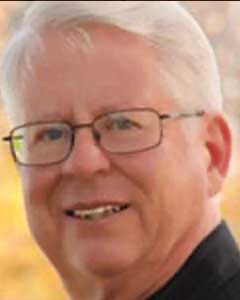For weeks, we have been exposed to a human catastrophe that began in nations such as Iraq, Syria and Afghanistan and has spread into most European countries. We have learned, for example, that Germany opened its doors to refugees from these nations and is now struggling to accommodate overwhelming numbers who are attempting to migrate there.
Great refugee/immigrant influxes are nothing new for Europe. Sixty years ago, in the wake of the Second World War, Germany was itself the source of millions of displaced persons (“DPs” as we in Canada called them). Canadians did an admirable job of resettling hundreds of thousands of former “enemies.”
Thirty-six years ago, 60,000 Indochinese refugees were resettled in Canada following the Vietnam War.
Now, a new challenge awaits us as major Canadian political parties compete with each other, with one, the New Democratic Party, proposing to invite as many as 46,000 refugees from war-torn Syria over a four-year period.
Canadians were not always as accepting of immigrants and refugees. Our border officials rejected Jews escaping Nazi persecution in the 1930s.
What has caused this significant change of heart? We have become a more compassionate people, largely the result of personal experience. My own family history might reveal why. My father’s people moved from Lower Saxony to Upper Canada at the time of Confederation. I still proudly visit some of their gravesites at St. James Lutheran Cemetery, in St. Jacobs, Ont. I am a sixth-generation Canadian with German heritage. When the post-Second World War influx began, government officials saw our region as a natural place of resettlement. But that process did not occur easily. I still recall how challenging it was for us to welcome “those Germans” because they had strange customs, “took jobs away from us,” and sometimes acted as if they had a right to our country after they lost the war.
When I arrived in Calgary in the late 70s, I attended a meeting after a worship service on my first Sunday in the city. We were asked to help resettle some Vietnamese “boat people.” One old German got up and argued vehemently. “Why should we help them? Nobody helped us when we came here?” (Not quite true, of course.) Fortunately, his view did not prevail and we were able to assist several families to find their footing in a new land.
Now, the call is to help accommodate a new migration of “foreigners,” this time of Muslim background. Are we still people of compassion?
The young boy who heard some of his elders complain about “those Germans” and the young parent who heard similar refrains against “those Asians” is now challenged in his later years to support “those Arabs.”
Fortunately, I have learned from my experience to view most new Canadian refugees and immigrants with compassion and see them as a great investment in the future of our nation. Many of us are here because caring, justice-seeking citizens practiced “welcoming the stranger.”
Wayne A. Holst was a Lutheran pastor (ELCIC) for 25 years. He taught religion and culture at the University of Calgary for a quarter-century and co-ordinates adult spiritual development at St. David’s United Church, Calgary.




